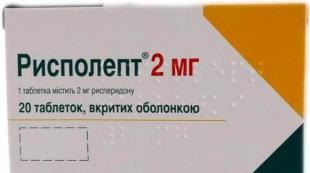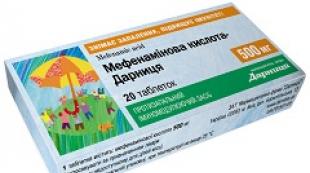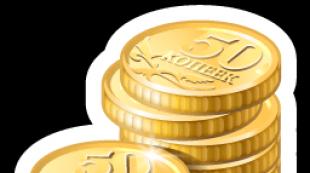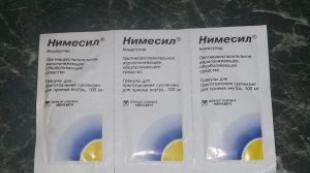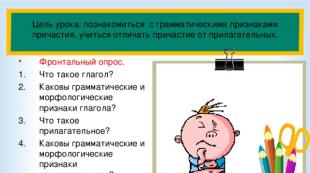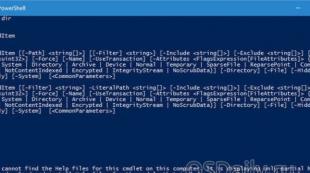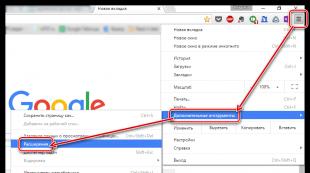Euphorbium compositum drops for children. "Euphorbium compositum": instructions, analogues and reviews
Pros: Didn't find any
Disadvantages: Homeopathic remedy
Let me start by saying that using this drug for infants is STRICTLY PROHIBITED! The instructions for the drug say that it can be used for children from 4 to 6 years old, but WITH CAUTION. Over 6 years old it is possible, but in your own dosage.
Homeopathic medicine " Euphorbium Compositum."

My dear readers, do you know what homeopathic medicines are? Now I will tell you about this in more detail. Nowadays, more and more homeopathic medicines are appearing on the shelves of pharmacies, opinions about which are varied. Personally, I am very skeptical about them. What is the mechanism of their action? Treating like with like. These same homeopathic remedies are tested in large doses on ABSOLUTELY healthy people in order to determine the symptoms of what disease they cause. After all the necessary tests have been carried out, ultra-low doses of homeopathic medicines are used to treat diseases whose symptoms are caused by large doses. Can you imagine this? As the manufacturers say, with this treatment, biological processes in the body are stimulated and the patient recovers. This makes me scared. Yes, opinions on homeopathic medicines are different, some are their supporters, some are opponents, as many people as there are so many opinions.
How does the drug "Euphorbium Compositum" work?
Like any homeopathic medicine. What does he treat? Any type of runny nose. This drug is produced in the form of a spray, or in the form of nasal drops in special dropper bottles. They say that it does a good job of relieving nasal congestion, as well as various inflammatory and allergic processes, while restoring the nasal microflora and the normal state of its tissues. Perhaps this is so, I won’t argue. Sprays easily. There are 140 doses in total in the drug, you can use it until the drug is completely used up, I would advise you to store it in a cool, dark place, protected from children. Many people very quickly cure their noses with the help of this drug, without detecting any side effects (itching and burning). They say that this drug can be used by pregnant and nursing mothers. This drug is produced in Germany, the shelf life is 5 years. The price is high, on average more than 500 rubles.

"Euphorbium Compositum" for children.
A runny nose in children is a common occurrence. That is why Euphorbium is used for children in the treatment of both acute and chronic processes. I repeat once again that it can only be used AFTER 4 YEARS in the form of a spray, from 4 to 6 years, one dose three times a day WITH CAUTION! After 6 years, 1-2 doses 3 to 5 times a day. It is imperative to consult a specialist. Under no circumstances should this drug be used for a long time. Don't believe the nonsense that it is not contraindicated for infants. In general, any drug should be given to infants with GREAT caution. It is not known how the tiny organism will behave.
Yes, there are people who liked this drug and helped them cope with nasal problems. But there are still more negative reviews, a lot of money wasted on homeopathy. My personal opinion is that this drug is unsafe for children’s bodies; use this drug with great caution. There are a huge number of other drugs at a lower price that really help cope with the problem without making it worse. Since there is an opinion that homeopathic medicines only worsen the disease. I cannot recommend this drug.
The most common disease affecting the upper respiratory tract is a runny nose (rhinitis). It can become chronic and also cause inflammation in the paranasal sinuses. Getting rid of rhinitis is often a very complex and lengthy process. There are a large number of methods for treating a runny nose and many medicinal and non-medicinal, homeopathic preparations. One of them is Euphorbium compositum
What is a homeopathic remedy
According to the basic homeopathic law, like cures like. All homeopathic medicines are used in very small doses, since if they are used in the usual dosage typical of traditional medicine, the opposite effect may occur, i.e. they can intensify the symptoms of the disease that the patient is trying to get rid of. There is an authoritative opinion that it is ultra-small doses of the drug that stimulate the functioning of certain organs and help get rid of the disease.
All homeopathic remedies are tested on volunteers. A prerequisite for this is an excellent state of health, since the drug in this case is prescribed in large doses, due to which the mechanism of its action is revealed.
One of the homeopathic remedies that has recently gained great popularity in the treatment of rhinitis (runny nose) of various origins is Euphorbium compositum.
This is a complex homeopathic preparation with pronounced anti-inflammatory, reparative and antiallergic properties, which includes components of plant and mineral origin used to treat rhinitis.
Indications for use of euphorbium compositum
Euphorbium compositum is used for the following conditions:
- Rhinitis of viral etiology.
- Hay fever.
The drug has proven itself well in the treatment of acute manifestations of rhinitis that develop against the background of acute respiratory infections of bacterial and viral origin. During the treatment process, metabolic processes are stimulated, which leads to an improvement in local immunity and accelerates the healing process. In the process of treating influenza and acute respiratory infections, experts recommend using the drug Euphorbium compositum along with other homeopathic remedies.
The use of the drug for the treatment of chronic processes of the upper respiratory tract (chronic rhinitis, sinusitis, sinusitis, etc.) is very effective. Thanks to its effect, the mucous membrane of the nasal cavity is restored in case of its excessive growth in chronic hypertrophic rhinitis, as well as in atrophic processes leading to a decrease in the volume of the mucosa (with atrophic rhinitis).
In case of chronic atrophic rhinitis (ozena), accompanied by severe atrophic changes in the osteochondral skeletal part of the nose and in the mucous membrane, as a result of which fetid crusts form in the nose, Euphorbium compositum, by stimulating metabolic processes, significantly alleviates the condition of patients.
The use of the drug for allergic seasonal or year-round runny nose reduces the tension of the mucous membrane, which leads to easier breathing.
The drug has proven itself well in the treatment of inflammatory processes localized in the adenoids (adenoiditis). During treatment, metabolic processes improve, which leads to a decrease in inflammation and exacerbation of the disease.
Euphorbium compositum can also be used for inflammation of the Eustachian tube and middle ear.
Due to the fact that when local metabolic processes are stimulated, the immune system is activated, the drug is recommended for use in the cold season in order to prevent respiratory bacterial and viral infections.
Composition Euphorbium compositum Nazentropen S
- 100 ml of aerosol contains
- Euphorbium / Euphorbia resiniferous / (Euphorbium) – 1 gr.
- Pulsatilla /meadow lumbago/ (Pulsatilla) – 1 gr.
- Luffa operculata /luffa laxative/ (Luffa operculata) – 1 gr.
- Hydrargyrum biiodatum (Mercurius bijodatus) – (Hydrargyrum biiodatum (Mercurius bijodatus)) – 1 gr.
- Hepar sulfuris calcareum – 1 gr.
- Mucosa nasalis suis – 1 gr.
- Argentum nitricum (Argentum nitricum) – 1 gr.
- Sinusitis – Nosode (Sinusitis-Nosode) – 1 g.
Excipients:
- R – R benzalkonium chloride – 0.02 g.
- NaCl – 0.8292 g.
- Sodium dihydrogen phosphate dihydrate - 0.0628 g.
- Purified water – 91.068 g.
- Sodium hydrogen phosphate dihydrate - 0.02 g.
Pharmacological action of the drug
Euphorbium compositum Nazentropen S has a specific effect on the mucous membrane of the nasal cavity and paranasal sinuses. By enhancing its functional activity, the drug has a beneficial effect on the stabilization of metabolic processes, as a result of which nasal breathing is facilitated, frontal tension is reduced and the mucous membrane of the nasal cavity is moistened.
Thanks to the presence of physiological solution (0.9% NaCl), Euphorbium compositum reactivates and moisturizes the epithelium, which has a beneficial effect on the mucous membrane in chronic rhinitis.
A noticeable effect of the drug is observed after 3–4 days of use if the dosage and instillation regimen are followed correctly. Euphorbium compositum does not cause burning or dryness of the nasal mucosa, and also produces a prolonged effect. It can be used as a monotherapeutic drug, as well as in combination with other drugs and as a non-drug treatment method.
Brief description of the components (their therapeutic effect)
Euphorbia (Euphorbium)
It acts as an additional remedy in the treatment of ozena, swelling of the middle ear, causing a feeling of complete deafness. Its beneficial effect has been noted in inflammatory processes of the larynx, sinusitis and catarrh of the paranasal sinuses of different locations, as well as in cases of severe irritation and burning pain on the affected mucous membrane, causing a feeling of dryness.
Meadow lumbago (Pulsatilla)
It has a therapeutic effect for inflammatory diseases of the respiratory tract, conjunctivitis, inflammation of the middle ear, cephalalgia and neurotic disorders, and is useful for people prone to colds.
Luffa laxative (Luffa opreculata)
Used to treat rhinitis (runny nose) and hay fever.
Mercurius biiodatus
Purulent inflammation of the conjunctiva, pharynx, tonsils and nasal mucosa.
Mucosa nasalis suis
Ozena, chronic rhinitis, nasal polyps, polysinusitis, pathologies of the paranasal sinuses.
Hepar sulfuris calcareum
Chronic purulent inflammatory processes of the middle ear, purulent inflammation of the mucous membrane, diseases of the lymphatic system and nervousness.
Argentum nitricum
Otitis, conjunctivitis, pharyngitis, catarrhal inflammation of the vocal cords (occupational pathologies) and chronic diseases of the mucous membrane.
Sinusitis – Nosode
Sinusitis of recurrent nature.
Release form
- Euphorbium compositum is available in aerosol form in 20 ml dark glass bottles equipped with a dispenser.
- Euphorbium nasal drops.
- Euphorbium compositum injection solution.
Directions for use and dosage Euphorbium compositum
The drug in the form of a spray is injected using a dispenser into the nasal cavity (1 - 2 doses in each nostril 3 - 5 times a day). Children under 6 years old – 1 dose 3 – 4 times a day.
In case of acute rhinitis, you can increase the number of injections up to 6 times a day.
When using drops 3 times a day, add 10 drops. For acute rhinitis – 6 times a day.
For acute sinusitis, eustachitis and otitis, 2.2 ml of injection solution is administered subcutaneously or intramuscularly (daily). For chronic, sluggish processes - 1-3 times a week.
Side effects
In case of hypersensitivity to the components of the drug, itching and burning of the nasal mucosa, increased runny nose and, in rare cases, bronchospasm attacks occur. At this time the drug should be discontinued.
Due to the fact that Euphorbium compositum contains iodine, patients suffering from thyroid diseases are advised to use it with great caution.
Contraindications
Individual allergic intolerance to the components of the drug.
Based on the instructions for use of Euphorbium compositum, it is not recommended for use in case of hypersensitivity of the patient to its individual components. At this time, there are no clinical data on the use of the drug in children under four years of age.
Interactions with drugs
No interactions were detected.
Overdose
No cases known.
Pregnancy and lactation
Use is permitted.
Storage
Euphorbium compositum is stored at room temperature out of the reach of children. Available without a prescription. Shelf life – 5 years.
Supplement to Euphorbium compositum
 The drug is approved for use in the treatment of acute and chronic inflammatory processes of the frontal, maxillary, sphenoid and ethmoid sinuses. Euphorbium compositum helps ease breathing and moisturize when dry nasal mucosa occurs, and also promotes the release and removal of mucous secretions. I recommend its use for chronic and acute runny nose of various etiologies (including allergic rhinitis), as well as for catarrhal inflammation of the ear.
The drug is approved for use in the treatment of acute and chronic inflammatory processes of the frontal, maxillary, sphenoid and ethmoid sinuses. Euphorbium compositum helps ease breathing and moisturize when dry nasal mucosa occurs, and also promotes the release and removal of mucous secretions. I recommend its use for chronic and acute runny nose of various etiologies (including allergic rhinitis), as well as for catarrhal inflammation of the ear.
Numerous experiments have proven that regular use of Euphorbium compositum has a noticeable therapeutic effect in chronic inflammatory processes of the paranasal sinuses (atrophy of the mucous membrane, dry form). It should be noted that treatment is recommended to be prescribed in combination with other homeopathic medicines that promote the activation of enzymatic activity. In this case, swelling of the mucous membranes is relieved, crusts are resolved, drying out of the mucous membrane is prevented, which, in turn, ensures easy free breathing and significantly reduces pressure in the frontal area.
Euphorbium composium does not cause redness (hyperemia) and subsequent narrowing of the airways, and also helps to accelerate the resorption of secretion products.
The beneficial therapeutic effect appears after prolonged use of the drug.
The drug is not addictive.
This is the only homeopathic remedy with direct antiviral activity (proven).
Currently, Euphorbium compositum is the most popular drug among patients. However, immediately before using it, consultation with a specialist is recommended.
At what age can Euphorbium compositum be used for children?
Due to the fact that there is no clinical experience in the treatment of young children, it is recommended for use after the age of four. The drug is prescribed in the form of a spray to children from four to six years old 3 to 4 times a day, one dose. After the age of six, 1–2 doses are prescribed 3–5 times a day for rhinitis of various etiologies and for adenoids.
Euphorbium compositum is recommended for use as part of the complex treatment of children suffering from acute sinusitis, eustachitis and otitis media.
To prevent exacerbation of chronic inflammatory diseases (sinusitis, sinusitis and otitis), the drug is also prescribed in combination with other medications.
It should be noted that Euphorbium compositum is very convenient to use and safe, since it contains plants such as meadow lumbago, euphorbia resiniferous and luffa laxative, which are used by traditional healers to treat diseases of the respiratory system.
Use of Euphorbium compositum during pregnancy
During the process of hormonal changes occurring in the body of a pregnant woman, a decrease in the body’s immune forces is very often observed, which leads to the occurrence of colds. Euphorbium compositum is considered the safest drug for women preparing to become mothers. It should be noted that, despite the fact that obstetricians-gynecologists speak very positively about the drug, it still needs to be treated with extreme caution and used only after the doctor’s permission.
Euphorbium compositum during pregnancy is prescribed in the form of drops or spray in usual doses during acute runny nose, sinusitis or during exacerbation of chronic rhinitis.
Name:
Euphorbium compositum
Pharmachologic effect:
Euphorbium compositum Nazentropfen S is a complex homeopathic remedy with reparative, antiallergic and anti-inflammatory effects. Intended for the treatment of rhinitis of various origins. The effect of the drug Euphorbium compositum Nazentropfen C is due to the complex of its constituent components of mineral (Hepar sulfuris, Argentum nitricum, Mercurius bijodatus) and plant (Luffa, Pulsatilla, Euphorbium) origin. The drug specifically affects the functional activity of the mucous membrane of the paranasal sinuses and nasal cavity, due to which metabolic processes are stabilized, frontal tension is reduced, breathing through the nose is improved and the mucous membrane is moisturized. In the case of chronic rhinitis, accompanied by atrophy and (or) dryness of the mucous membrane, it causes reactivation of the epithelium and its hydration (due to the inclusion of Nazentropfen C 0.9% sodium chloride solution in the composition of Euphorbium).
There is a persistent improvement in the condition of the nasal mucosa and paranasal sinuses already after the 3-4th day of using Euphorbium compositum C if the dosage regimen is followed. It does not have the effects characteristic of vasoconstrictor drugs (burning of the mucous membrane and its dryness, short-term effect). Effective as monotherapy, compatible with other drugs and non-drug treatment methods.
Indications for use:
· For the treatment of rhinitis of various origins (bacterial rhinitis, allergic rhinitis, atrophic rhinitis, viral rhinitis, hyperplastic rhinitis, hay fever - hay fever),
Ozena (as a component of complex treatment),
· adenoids,
drug-induced rhinopathy,
· acute and chronic otitis, eustacheitis, sinusitis (as part of complex treatment).
Method of application:
Nasal spray Euphorbium compositum Nazentropfen S is intended for administration into the nasal cavity. The drug is injected using a dispenser, 1-2 doses 3-5 times a day (in each nostril). In case of acute illness, injections up to 6 times a day are allowed. In pediatrics - children under 6 years of age are injected with 1 dose of spray 3-4 times a day. The drug can be prescribed to children under 1 year of age.
Adverse events:
Hypersensitivity reactions, itching, burning.
Contraindications:
Allergic reactions to the components of Euphorbium compositum.
During pregnancy:
Can be prescribed for pregnant women and during breastfeeding.
Interaction with other drugs:
No drug interactions with other drugs have been identified.
Overdose:
Cases of overdose are unknown.
Release form of the drug:
Aerosol for administration into the nasal cavity. 20 ml bottles are equipped with a dosing device.
Storage conditions:
Store at room temperature in a dark place out of reach of children. Over-the-counter release. Shelf life – 5 years.
Compound:
Active substances (in 100 ml aerosol): Pulsatilla pratensis D2 - 1 ml, Mucosa nasalis suis D8 - 1 ml, Euphorbium D4 - 1 ml, Luffa operculata D2 - 1 ml, Argentum nitricum D10 - 1 ml, Hepar sulfuris D10 - 1 ml , Mercurius bijodatus D8 - 1 ml, Sinusitis-Nosode D13 - 1 ml.
Excipients: benzalkonium chloride 0.01%, 0.9% sodium chloride solution.
Additionally:
Long-term use of the drug does not cause a weakening of the therapeutic effect or addiction - on the contrary, the effect of Euphorbium compositum Nazentropfen C increases and persists for a long time.
The drug is recognized as the only homeopathic remedy with proven direct antiviral activity. In this regard, in Germany it is used for the prevention and treatment of colds, even in children.
Drugs with similar effects:
Nazalongum Grippostad Rino Eucazolin Tyzine Xylo Xymelin
Dear doctors!
If you have experience in prescribing this drug to your patients, share the result (leave a comment)! Did this medicine help the patient, did any side effects occur during treatment? Your experience will be of interest to both your colleagues and patients.
Dear patients!If you were prescribed this medicine and completed a course of therapy, tell us whether it was effective (helped), whether there were any side effects, what you liked/disliked. Thousands of people search the Internet for reviews of various medications. But only a few leave them. If you personally do not leave a review on this topic, others will have nothing to read.
Thank you very much!Euphorbium compositum is a complex homeopathic remedy for the treatment of all types of runny nose, adenoids, otitis media, and is also used for preventive purposes.
Homeopathy is gaining popularity in modern society. This is because over the years, doctors have been prescribing more and more antibiotics to patients. It comes to the point that newborn babies with a common cold are prescribed ten-day courses of treatment with antibiotics. But they mercilessly kill individual microflora in the intestines, have a lot of side effects and generally reduce immunity.
Homeopathic remedies do not have side effects. Their action is based on the introduction of small doses of substances that cause certain diseases, thereby helping to develop immunity and gently teaching the body to fight acquired infection.
Euphorbium compositum - composition
- Active ingredients: Euphorbium D4 – 1 g, Pulsatilla pratensis D2 – 1 g, Luffa operculata D2 – 1 g, Hydrargyrum bijodatum D8 – 1 g, Mucosa nasalis suis D8 – 1 g, Hepar sulfuris D10 – 1 g, Argentum nitricum D10 – 1 g, Sinusitis-Nosode D13 – 1 g.
- Excipients: benzalkonium chloride, sodium dihydrogen phosphate, hydrogen phosphate and chloride, water.
Euphorbium compositum - properties
This drug is created from a complex of plant substances and minerals. Has antimicrobial and antiallergenic properties. Helps relieve swelling of the mucous membrane, inflammatory processes in the nasal cavity and paranasal sinuses. Moisturizes the nasal canals, making breathing easier and eliminating the unpleasant feeling of dryness and burning. Also relieves inflammation in the ear canals.
Euphorbium compositum spray is approved for children from birth for the prevention and treatment of runny nose, otitis media and inflammation of the adenoids.
Euphorbium compositum - application
- any type of runny nose;
- all types of sinusitis (as an adjuvant in complex treatment);
- sinusitis (in complex treatment);
- otitis;
- adenoids;
- drug-induced rhinopathy;
- Ozena (in combination with other drugs)
- for the prevention of acute respiratory viral infections, acute respiratory infections;
- to prevent exacerbation of chronic forms of the disease.
Euphorbium compositum for adenoids
The drug reduces inflammation in the adenoid area and has an antibacterial effect.
Euphorbium compositum for sinusitis
Cleanses the maxillary sinuses and helps remove mucus from them. Relieves inflammation and swelling of the mucous membrane. Makes breathing easier. In chronic cases of sinusitis, the drug prevents exacerbation of the disease. In acute forms of the disease, the course of treatment is shortened.
Euphorbium compositum for prevention
This medicine is sprayed into the nasal cavity, which is a channel for various infections and bacteria to enter the body. This is where it helps prevent infection from getting inside.
Preventive courses will help reduce the risk of exacerbation of chronic diseases.
Euphorbium compositumt - dosage
- Children from birth to six years old - one injection into each nasal canal 3-4 times a day.
- Children over six years of age and adults – two injections into each nasal canal 4-6 times a day.
The course of treatment is prescribed by the attending physician, but to achieve maximum effect it is recommended to use it for at least five days.  The drug is not addictive, and the effectiveness of treatment directly depends on its duration.
The drug is not addictive, and the effectiveness of treatment directly depends on its duration.
Euphorbium compositum contraindications and side effects
The drug is approved for use by pregnant women and nursing mothers.
A contraindication may be individual intolerance to any of the components of the drug.
If at any stage of treatment you experience burning sensations, dryness or skin rashes, you should immediately stop taking this medication.
Euphorbium Compositum Nazentropfen S is a combination drug that helps relieve swelling of the nasal passages, prevent inflammation and improve nasal breathing. Along with this, the drug exhibits reparative and antiallergic properties.
Indications for use
- Rhinitis of various etiologies
- Hay fever
- Chronic sinusitis
- Hay fever
- Ozena
- Drug-induced rhinopathy
- Overgrowth of adenoid tissue
- Eustacheita
- Otitis in various forms.
Compound
Euphorbium Compositum Nazentropfen C spray 100 ml contains the following homeopathic components:
- Euphorbia resiniferous D4 – 1 ml
- Lumbago meadow D2 – 1 ml
- Luffa covered D2 – 1 ml
- Mercury diiodide D8 – 1 ml
- Sulfuris hepar D10 – 1 ml
- Silver nitrate D10 – 1 ml
- Sinusitis-Nosode D13 – 1 ml
- Mucosa nasalis suis D8 – 1 ml.
Additionally there are:
- Sodium hydrogen phosphate chloride and dihydrate
- Benzalkonium chloride
- Sodium dihydrogen phosphate dihydrate
- Water.
Medicinal properties
Euphorbium Compositum Nazentropfen S is a homeopathic drug containing phyto and mineral components. The description of the composition indicates the complex effects of the drug. Its regular use allows you to eliminate allergic manifestations of the respiratory system, relieve the inflammatory process and normalize the full functioning of the mucous membranes.
Thanks to the specific effect on the mucous membrane, the course of metabolic processes is normalized, the manifestation of hyperemia is significantly reduced, and nasal breathing is normalized. The herbal components of the aerosol gradually eliminate unpleasant symptoms and prevent the development of complications.
Unlike vasoconstrictor drops Euphorbium Compositum Nazentropfen S moisturizes the mucous membranes of the nasal cavity and promotes the reactivation of proliferative reactions. The drug is used to carry out the procedure of sanitation of the nasal passages in the case of atrophic rhinitis, which occurs in a chronic form.
The therapeutic effect of the drug will be noticeable after 3 or 4 days from the start of treatment.
Release form
Price: from 438 to 652 rubles.
The drug is presented as a practically colorless solution with a slight yellowish tint without a pronounced aroma. The herbal medicine is produced in 20 ml glass bottles equipped with a dispenser cap. Inside the pack there is 1 bottle of phytospray, as well as instructions for use.
Methods of application
Euphorbium compositum Nazentropfen S should be used intranasally. The irrigation procedure involves injecting one or two doses of the drug into each nostril three to five times throughout the day.
For children under six years of age: one dose of phytospray three to four times a day. The drug can be used to treat children up to one year old.
Use during pregnancy and pregnancy
The plant-based spray is a safe drug for this group of patients.
Precautionary measures
With prolonged use, there is no addiction to the drug; it does not contain vasoconstrictor substances.
It is prescribed with special caution for diseases of the thyroid gland, due to the fact that one of the components of the drug contains iodine.
Cross-drug interactions
The herbal medicine can be combined with other drugs.
Side effects
The following reactions may occur:
- Allergic manifestations (swelling of the mucous membranes, severe itching, multiple skin rashes)
- Excessive salivation
- Development of bronchospasm.
The occurrence of the symptoms listed above is a reason to consult your doctor for advice.
Storage conditions and shelf life
It is recommended to store the phytospray at temperature conditions (from 15 to 25 C) in a place with moderate humidity, protected from sunlight. The spray can be used for five years from the date of production.
Analogs
 Bittner, Austria
Bittner, Austria
Price from 515 to 746 rub.
Delufen is a herbal medicine intended for the treatment of runny nose of various origins. Delufen is based on a complex of homeopathic components, which has a beneficial effect on the nasal mucosa, restoring its full functioning. Delufen is available in spray form.
Pros:
- Eliminates inflammation in the nose
- Quickly relieves congestion
- Can be used to treat children from 1 year of age.
Minuses:
- Expensive
- Difficult to find in the pharmacy chain
- Contraindicated in hyperthyroidism.
